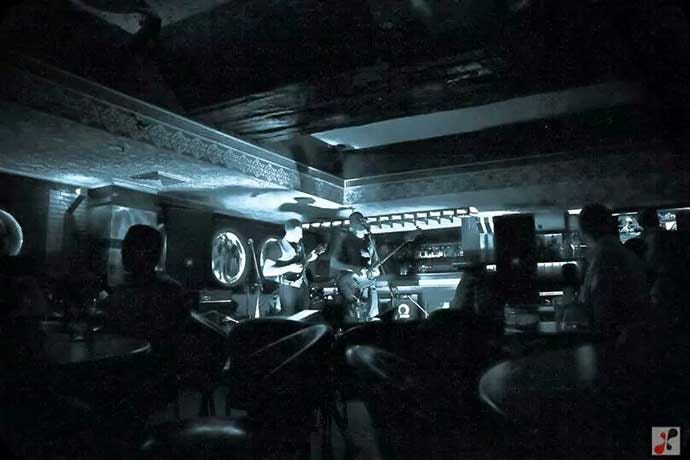Measuring Musical Success
My idea of success is no longer to play the Glastonbury Music Festival but to be a person who can play tunes that move people. Musical success is a matter of philosophy.
If asked to picture a serious rock band, no one would imagine the group I play electric mandolin for. A trio of teachers moonlighting at small clubs around Delhi does not fit any conventional notion of achievement. But as you will see, measuring musical success is a matter of philosophy. More importantly, learning the true value of music can make your life better.
Like many of you, my thinking about music was consolidated as a teenager. Children seem to naturally recognize what adults tend to forget. In this case, that music can give life meaning. The band that shaped my adolescence was Led Zeppelin. The songs on the Houses of the Holy album interested me much more than anything at school. But my young imagination was also distracted by the legendary lifestyle of superstars. I didn’t just dream of becoming a virtuoso but of a life of sex, drugs, and rock ’n’ roll. My room soon turned into a shrine for guitar heroes. I tried to practice patiently but spent more of my time and money reading magazines about parties and fame. Somehow, despite my lack of focus, I learned to play.
These days my dreams of rock stardom are dead but my desire to reach musical nirvana is very much alive. With a family and job, wrinkles and grey hairs, a world tour is no longer my aim. But I am still seriously striving for musical success. That may seem far-fetched, but it isn’t. We have all had transcendental musical experiences, many of which were not provoked by pop stars. Haven’t we all passed some random street musician who affected us powerfully? As a foreigner in India I am often stirred by the simplest Delhi drumbeat. The feelings created by amateur gospel or folk singers also come to mind. My idea of success is no longer to play the Glastonbury Music Festival but to be a person who can play tunes that move people. Good music, therefore, just has to create emotion.
That realization led me to play in bands in my spare time, currently with the PM10s. The casual observer might wonder if the hours practiced, the money spent on equipment, and the late nights are worth the trouble. Granted the part-time musician might only play for a small crowd, a free meal, and a few mugs of beer at places like Hauz Khas’ The Living Room, but that misses the point. Playing to an audience (any audience) can amplify emotion. A concert date-even at the smallest bar- provides the artist motivation to perfect their craft. Each person in the audience multiplies the energy. So the musical experience my teenage soul was searching for can be found in a Delhi club. Rock ’n’ roll is everywhere.
The PM10s last gig illustrates the point. The evening started with a comedy of errors in Connaught Place’s Blues Cafe. Our sound check happened two hours late and I suffered a considerable electric shock when a tech handed me a live wire. Then, during our first song, the same guy shut my amp off while trying to turn it up. Without the right philosophical approach and commitment to music these mishaps could have sunk the ship. Luckily the audience was focused on having a good time and the band was dedicated to delivering it. Our concentration on making unique music changed the tide. During the second tune the months of practice paid dues. Our separate instrumental pieces locked into a whole, where the sum became greater than its parts. By the third song our jazz-trained Bulgarian drummer had settled in, unleashing surprise accents. A sophisticated shot off the rim, an explosive cymbal crash, clanking cowbells created excitement where there was none. People drifted in and our leader, Scott Hsu, transformed. The mild-mannered mathematician by day channeled Kurt Cobain for the rest of the night. He slapped strings and sang with soul. The music was so powerful that for an hour I forgot myself and became the rocker of my dreams. For the rest of the set I rode mandolin riffs over funky grooves into a strange kind of promise land. I floated in a sweet spot, one that Scott later described as “the thin line between staying in control and losing yourself”. Emotions were created. The audience called for an encore. We had succeeded.
This lesson, however, is not only applicable to the performer. Anyone seeking a transcendental experience should seek out live music. An evening spent celebrating the range of human emotions is a successful evening. In fact, perhaps you should seriously think about letting the PM10s provoke you at our next gig…
[highlight]Photo: Blues Cafe, Connaught Place[/highlight]
You can visit PM10s’ Facebook page here
Adam Rugnetta is a history teacher, current events cartoonist, still dreaming of rock stardom, father and husband, international man of mystery.



